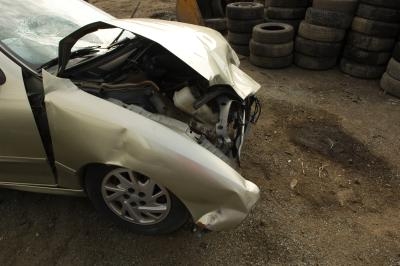
Most states have several different types of titles that can be issued for vehicles. The majority of vehicles that are registered in the state will have basic motor vehicle titles. However, salvage, rebuilt and assembled titles are available for specially-constructed or restricted vehicles. It is important to understand what a special designation on the title means before you buy a vehicle.
Rebuilt titles are commonly given to vehicles that were considered "totalled" and issued a salvage title at one point. When a vehicle with a salvage title is repaired to the point where it passes state inspection -- and is once again allowed to be driven on the roadways -- it is normally issued a rebuilt title. Not all states issue rebuilt titles, but many do.
An assembled title is given to a vehicle that was built or assembled by an individual or business that is not a major car manufacturer. These include kit cars and vehicles that were assembled from the parts of other vehicles, such as restored classic cars.
Cars that are given a rebuilt title can be any age, make or model. In most cases, these vehicles were in severe auto accidents, flooded or otherwise damaged beyond the point where an insurance company felt they were cost-effective to repair. Rebuilt cars are often not anything special, and you will probably not be able to identify a rebuilt car by looking at it. In some cases, rebuilt cars can be difficult to insure due to safety and value concerns.
To be issued an assembled car title, states typically require the vehicle to be over a certain age, or constructed from a kit. These vehicles may have to pass a high-level vehicle inspection, which may have to be performed by someone who is state-certified to perform these inspections. In addition, assembled vehicles are sometimes limited in terms of how many new assembled vehicles are allowed to be registered each year.